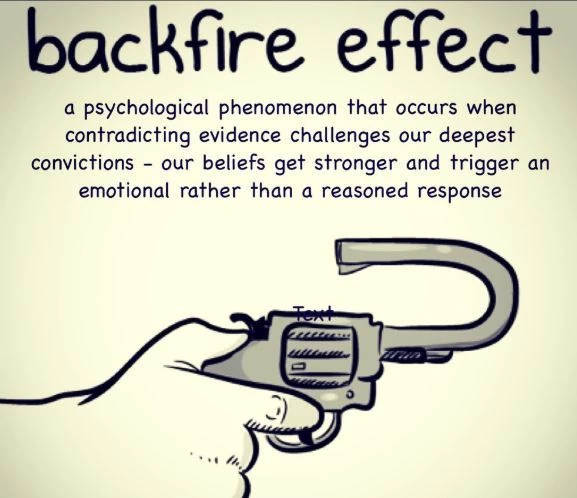

Are we willing to accept evidence?
I love to read and I love reading the thoughts and research of others. It often inspires me on my own path and in many ways sparks new trains of thought. I am currently reading Mind Beyond Brain: Buddhism, Science, and the Paranormal
by David E. Presti which is a really thought-provoking book by the way. There was a particular line in the description of the book itself that really resonated with and made me think:
In Mind Beyond Brain, the neuroscientist David E. Presti, with the assistance of other distinguished researchers, explores how evidence for anomalous phenomena--such as near-death experiences, apparent memories of past lives, apparitions, experiences associated with death, and other so-called psi or paranormal phenomena, including telepathy, clairvoyance, and precognition--can influence the Buddhism-science conversation. Presti describes the extensive but frequently unacknowledged history of scientific investigation into these phenomena, demonstrating its relevance to questions about consciousness and reality. The new perspectives opened up, if we are willing to take evidence of such often off-limits topics seriously, offer significant challenges to dominant explanatory paradigms and raise the prospect that we may be poised for truly revolutionary developments in the scientific investigation of mind.
Mind Beyond Brain: Buddhism, Science, and the Paranormal
by David E. Presti
Herein lies the question. Are we willing to accept evidence if it is contrary to what we believe? Has it already been offered up but we are ignoring it or writing it off because it challenges what we think we know? Now of course this is something that can work on both ends of the stick when it comes to the paranormal. You can be offering evidence to a person that their photograph is not paranormal and they refuse to accept it. You can be offering evidence to a person of something paranormal and they refuse to accept it. Look at something like the flat Earth theory for example. You can offer proof that the Earth is indeed round, but they choose to not accept this and write it off as propaganda as they know the 'absolute truth'. They are not delusional as some people may imply as mentally they are very sound, however, they are in a form of denial and by presenting this evidence, you are in some ways making their belief stronger. It is what is called 'The Backfire Effect'.
The backfire effect
Once something is added to your collection of beliefs, you protect it from harm. You do this instinctively and unconsciously when confronted with attitude-inconsistent information. Just as confirmation bias shields you when you actively seek information, the backfire effect defends you when the information seeks you, when it blindsides you. Coming or going, you stick to your beliefs instead of questioning them. When someone tries to correct you, tries to dilute your misconceptions, it backfires and strengthens those misconceptions instead. Over time, the backfire effect makes you less skeptical of those things that allow you to continue seeing your beliefs and attitudes as true and proper.
David McRaney
You Are Now Less Dumb: How to Conquer Mob Mentality, How to Buy Happiness, and All the Other Ways to Outsmart Yourself 2013
The backfire effect is one of the many cognitive biases that affects the way that we think and process information. We know already that just by believing in something, we are biased because we can unknowingly make things fit into our belief system or we tend to perceive something in a way that complements our belief. If you have two people standing side by side in a room and experience the same event, one could walk away firm in their mind it was a paranormal experience while the other will walk away confident it was something completely explainable.

When it comes to other people offering a commentary on our experience whether we have asked for it or not, once we have made up our mind, it becomes difficult for the person to accept an explanation that doesn't match what they believe. We see it happen all the time on social media. People have a strong emotional attachment to their 'evidence' of the paranormal for example. They can become defensive and even aggressive when you debunk an experience. If you explain what causes a camera to photograph orbs for example, often they will take offense and say "but my house isn't dusty it can't be dust". They make excuses and will often keep seeking an opinion until they get one that aligns with their belief. On the other end again when you offer some truely interesting evidence to a skeptic, they may find a way to flaw and dismiss it, sometimes creating a story of rational sequences that seem even more unlikely than the fact that it could be something paranormal. In their mind, they are firm that they believe the paranormal doesn't exist and nothing will change that.
When you start to pull out facts and figures, hyperlinks and quotes, you are actually making the opponent feel even surer of his position than before you started the debate. As he matches your fervor, the same thing happens in your skull. The backfire effect pushes both of you deeper into your original beliefs.
David McRaney
It seems in some ways we have lost before we have even begun. Now of course this is speaking in general terms here and there are always exceptions and people who willingly take on board criticisms. A lot of this could have to do with the way the situation is approached. Discussions in a lot of ways become a battle between the two people. It starts to become who will win rather than looking objectively at the evidence itself. Both people 'know' they are right and will continue to argue the point until one wins the conversation. This is what can make a person dig deeper back into their belief system because our natural instinct is to protect our belief system and we become defensive. It is also believed that our brains are lazy and can be overloaded with too much information. I know sometimes when things get too detailed, I tune out. I don't mean to but it happens. How many times does someone send you a long article to read to prove a point yet you read a paragraph and think "this is too long I am not going to read this"?. In a conversation, people tend to wait for their turn to talk rather than listening.
In disputes upon moral or scientific points, ever let your aim be to come at truth, not to conquer your opponent. So you never shall be at a loss in losing the argument, and gaining a new discovery.
Benjamin Franklin
1866 guide to the art of conversation
So the next time you are presented with 'evidence', regardless of your beliefs, ask yourself if you are truely willing to accept it? If you are submitting evidence to review, are you truely ready to accept the feedback? If you are not willing to hear and consider an answer contrary to your beliefs, it doesn't allow much room for growth. When I look back to 7 years ago and the things I believed and did as a paranormal investigator I cringe. Even when I read things I wrote years ago, it feels like it was from a different person. My opinion and belief system have changed many times both from research and experience itself. We say as people investigating the paranormal that we are open-minded but we have to ask ourselves, are we open-minded to accept the truth whatever that may be?
If you enjoy LLIFS, consider buying me a book (otherwise known as buy me a coffee but I don't drink coffee and I LOVE books). Your donation helps to fund the LLIFS website so everyone can continue to access great paranormal content and resources for FREE!

Top pages with similar subjects
Don't forget to follow the Facebook page for regular updates
Join the mailing list to receive weekly updates of NEW articles. Never miss an article again!
Buy the latest and past issues Haunted Magazine
Check out the books written by LLIFS